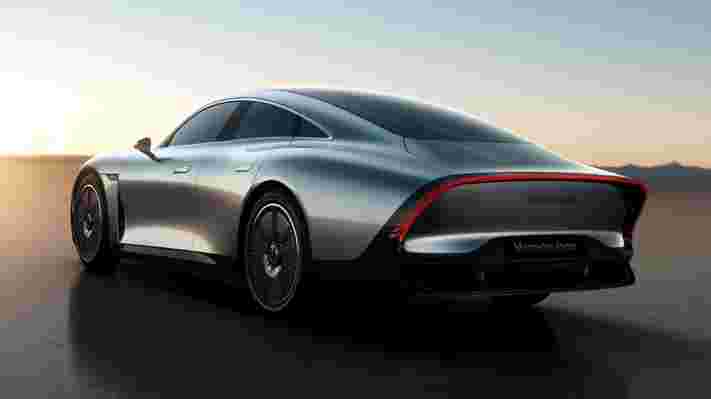Last year Meta, then known as Facebook, announced its plans to create a massive online space that would blend together the digital and real worlds called the metaverse .
The idea of the metaverse – a term borrowed from a dystopian sci-fi novel – has understandably left more people feeling more concerned than thrilled. After social interaction was mostly confined to Zoom calls and online chats, I can see why people have had enough of online hangouts.
Yet, as my partner and I have experienced, it might not be as scary as people think. Our time playing Walkabout Mini Golf with friends online has helped us feel less isolated than ever – and, according to the developer, we aren’t the only players to feel that way.
VR is an escape from my isolation
Unlike most of the team here at TechRadar – who are generally found near our offices in London, New York, and Bath – I’m based in a small countryside UK town in the middle of nowhere. One of my neighbors is a horse and public transport is non-existent.
It’s the sort of sparsely populated, unconnected spot that people look to escape from as soon as they turn 18 – and most never look back. If they do return it’s usually to escape the hustle and bustle of the metropolitan lifestyle, raise a family, retire, or (on occasion) all of the above.

As such, pretty much everyone I know has gone away for some reason or another, moving off to distant lands that you can’t visit in an evening after work. My girlfriend has found it isolating here too, as she’s moved away from her tight-knit circle of friends and family – and the pandemic made making new local friends a challenge, to say the least.
We’ve tried video calling, playing online games, everything we can to stay connected with people over the internet. So far, nothing has come close to beating us taking a many-hour long car ride to go and visit people in person.
Well, almost nothing.
In an attempt to escape the monotony of countryside life we thought we’d try out the Meta Quest 2 VR headset. The single-player experiences were a blast, but the tech really shines when you’re playing with other people that you know online.
Ready for a round of VR minigolf?
Our go-to VR title when playing online multiplayer is Walkabout Mini Golf – simply one of the best VR games ever made. Developed by Mighty Coconut, it perfectly combines realistic yet simple controls with stunning level design to create an excellent minigolf sim in VR.
It also offers some of the best multiplayer gaming on the Quest 2, but surprisingly it was almost a single player-only experience.
Speaking to Lucas Martell, the game’s creator, he told us that Walkabout Mini Golf didn’t have multiplayer at first but, “Oculus [now Meta] actually, they pushed us to add multiplayer in there.
“Especially back then, there just weren’t that many headsets out there, but I’m so glad [Oculus] did push us because now we’re building so much around multiplayer.”
Walkabout’s multiplayer success makes so much sense in hindsight.
For one, the game is incredibly approachable. Even if you’re completely new to gaming or VR, the recognizability of mini golf – and the game’s lack of complex controls – makes it easy to jump in and play a round.

But there’s more to it than that, the surrounding scenery and the minigolf help create a beautiful, relaxing social environment that mimics real life.
As Martell explains, “That sense of space and your surroundings is critical in multiplayer VR especially. Because there’s the time between shots where you’ll be looking around, catching up and you’ll be going through the level more slowly.
Also by sharing in this activity – playing minigolf while you talk – the game helps to make the whole experience feel more casual. It’s like when everyone is standing around in the kitchen cooking together and you can get into those casual yet meaningful conversations because the social pressure has been lifted off.”
Based on my own experiences, Martell is 100% correct. Rather than feeling like family and friends are hundreds of miles away, Walkabout made it feel like we were in a room together and able to joke around just like we would in real life.
It was no surprise to me, then, when Martell revealed that players had met, started dating, and even proposed within Walkabout. Just like minigolf courses in real life, this VR world is a destination that people go to visit, grow attached to and form meaningful memories in. The same can’t be said of Zoom calls .
Enter the metaverse
While Walkabout Mini Golf isn’t on the scale of a metaverse, Martell hopes his game is a representation of how an ideal virtual world would work.
Because, as he sees it, the main advantage of a metaverse wouldn’t be its enormous scale. Instead, it’s the ease with which it could facilitate people coming together across different spaces and hardware.
“Think of Reddit,” he said. “You have these microcosms of interest, and people can jump between them and interact with each other. Each subreddit has its own interests and pockets of people, and you can access the site through a range of different devices.
Similarly, if a metaverse can reduce the friction between these pockets of VR communities then that kind of thing should be what’s encouraged.”
So far it looks like this frictionless interaction is at the forefront of metaverse developers’ minds; however, there’s the risk that platform exclusivity could hinder progress towards Martell’s vision of a Reddit-like scenario.
Martell believes one of the best elements of Walkabout is its cross-platform functions – people can play together across Quest, Steam, Vive, and even on Android and iOS smartphones. If Valve, Meta, and Vive players are each trapped in their own metaverse pockets, this bright, interconnected future would be lost.
I sincerely hope this won't be the case though.

Walkabout Mini Golf has shown me that there’s something worthwhile to be gleaned from the metaverse – a kind of online social space that just isn’t possible without the aid of VR.
If you’re feeling cautious, or even a little frightened about the idea of a metaverse, I’d encourage you to try playing a round of Walkabout Mini Golf in VR with a friend. Five minutes into playing the new Sweetopia map and you’ll be sold on the whole concept.
Pro Bowl live stream: how to watch NFL all-star game 2022 online without cable
It's good old-fashioned red vs blue as the best of the AFC and the best of the NFC strut their stuff in Vegas. Not something you want to miss. Read on as we explain how to get a 2022 Pro Bowl live stream and how to watch the NFL all-star game ahead of the 2022 Super Bowl live stream online wherever you are.
On one side of the 2022 Pro Bowl are Justin Herbert, Jonathan Taylor and Tyreek Hill, on the other, Kyler Murray, Dalvin Cook and Deebo Samuel.
OK, it's not the big one, but selection to the Pro Bowl is a huge honor, and there's something awesome about being able to cheer for the guy you're not normally allowed to cheer for (but secretly have a soft spot for). Chargers QB Herbert starts for the AFC, coached by the Titans' Mike Vrabel, while Murray has the field for the NFC, with Matt LaFleur screaming from the sidelines.
Don't expect many big hits - or perhaps none at all - as this is more of a friendly backyard scramble than an opportunity to exact revenge on an old nemesis, but with so much talent on the field, there's sure to be a few wow plays.
It's always a lot of fun, so follow our guide on how to watch the 2022 Pro Bowl online and get an NFL live stream wherever you are in the world.

Pro Bowl live stream: how to watch NFL all-star game in the US
How to watch 2022 Pro Bowl from outside the US
If you've mismatched a holiday or you're away on business and you want to watch your country's coverage from abroad, then you'll need to use a VPN . This will help you dial in to a location back in your home country to avoid geo-blocks and regain access to the content and services you already pay for back home.
A VPN is generally perfect for this as it allows you to change your IP address so you appear to be in a completely different location when the big game is on.
Use a VPN to live stream Pro Bowl from anywhere

How to watch 2022 Pro Bowl: live stream NFL in Canada

Pro Bowl live stream: how to watch NFL online in the UK
How to watch Pro Bowl FREE: live stream NFL in Australia
Exclusive: The Mercedes Vision EQXX can't even hit 90mph, but that's okay
We were left a little puzzled as to why Mercedes decided to leave the top speed and acceleration specs off the official (18 page!) press release of its Vision EQXX - but now we know. They're really not what you'd expect.
During an exclusive media briefing during CES 2022 which focused on the battery, electric power and UI/UX of the Vision EQXX, TechRadar asked what these specs were.
Jasmin Eichler, Director Future Technologies at Daimler AG responded quickly, revealing a 0-100km/h (0-62mph) acceleration time of 7 seconds and a surprisingly sluggish 140km/h (around 87mph) top speed.
To give you some comparisons, a Vauxhall Corsa EV and Chevy Bolt EV can achieve faster top speeds. Meanwhile Ford's current cheapest car in the US - the 2021 Ecosport - can hit 119mph.
However, the top speed and acceleration of the Vision EQXX really doesn't matter.
Missing the point
The Vision EQXX isn't about speed, it's about efficiency, as Eichler explains; "as our overall goal, we tried to work out a challenging range number to shoot for, and we picked this (1,000km) because it just works".
Mercedes wanted to challenge itself when it came to efficiency and battery density, in a bid to make a car that is supremely closer to production, while offering staggering range statistics.
Adam Allsopp, X1 Powertrain Director at Daimler AG added; "We've looked at the best route for efficiency and battery density."
And what Mercedes' engineers have been able to achieve in terms of battery breakthroughs has to be commended.
They took the battery from the Mercedes EQS, which offers an already-impressive 453 miles WLTP (729km) of range, and shrunk its size by 50% and decreased its weight by 30%.
Adding that into a the Vision EQXX - which has the lowest drag co-efficient of any road car at just 0.17 - and you end up with a super-slippery EV with amazing range.

And lets not forget, 87mph (140km/h) is more than the upper speed limits on many roads around the world, so it's not like you'd exactly be left behind day-to-day.
Also, you won't actually be able to buy the EQXX - it's just a concept car, or as Mercedes likes to put it, a "road-legal research prototype" which is actually very close to a production car.
So close in fact that this new battery technology - and a bunch of other features in the Vision EQXX - will be used in future Mercedes series EVs.
What's likely to happen is range will be reduced slightly in favor of more attractive top speed and acceleration specs, but continued advancements in battery chemistry and engineering may mean the reduction is as great as you expect.
And that would certainly be a good thing, as considering the likely high sticker price of future Mercedes EVs with sizable range, the automaker would be wise to work on the speed figures to help justify the final cost to consumers.